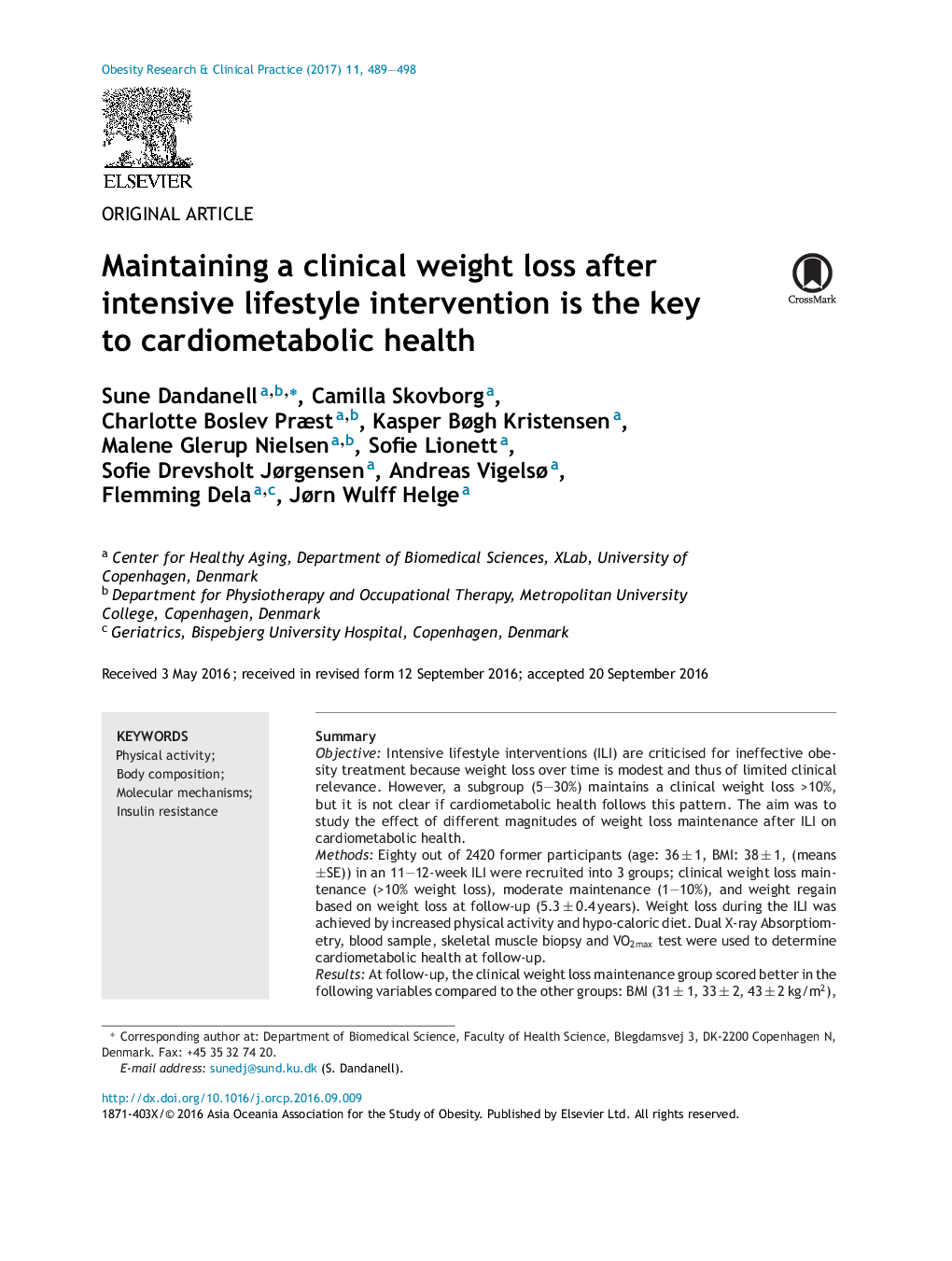| کد مقاله | کد نشریه | سال انتشار | مقاله انگلیسی | نسخه تمام متن |
|---|---|---|---|---|
| 5619149 | 1406056 | 2017 | 10 صفحه PDF | دانلود رایگان |
- The health benefit of different magnitudes of weight loss is debated.
- We investigated improvements in health over a wide range of weight loss.
- >10% weight loss leads to major improvements in cardiovascular and metabolic health.
- This is possibly linked to upregulation of proteins in glucose metabolism.
SummaryObjectiveIntensive lifestyle interventions (ILI) are criticised for ineffective obesity treatment because weight loss over time is modest and thus of limited clinical relevance. However, a subgroup (5-30%) maintains a clinical weight loss >10%, but it is not clear if cardiometabolic health follows this pattern. The aim was to study the effect of different magnitudes of weight loss maintenance after ILI on cardiometabolic health.MethodsEighty out of 2420 former participants (age: 36 ± 1, BMI: 38 ± 1, (means ±SE)) in an 11-12-week ILI were recruited into 3 groups; clinical weight loss maintenance (>10% weight loss), moderate maintenance (1-10%), and weight regain based on weight loss at follow-up (5.3 ± 0.4 years). Weight loss during the ILI was achieved by increased physical activity and hypo-caloric diet. Dual X-ray Absorptiometry, blood sample, skeletal muscle biopsy and VO2max test were used to determine cardiometabolic health at follow-up.ResultsAt follow-up, the clinical weight loss maintenance group scored better in the following variables compared to the other groups: BMI (31 ± 1, 33 ± 2, 43 ± 2 kg/m2), composition (34 ± 2, 40 ± 1, 49 ± 1% fat), visceral adipose tissue (0.8 ± 0.2, 1.7 ± 0.5, 2.4 ± 0.4 kg), plasma triglycerides (0.8 ± 0.2, 1.3 ± 0.4, 1.6 ± 0.3 mmol/L), plasma glucose (4.9 ± 0.1, 5.9 ± 0.4, 5.9 ± 0.1 mmol/L), Hb1Ac (5.1 ± 0.0, 5.6 ± 0.2, 5.8 ± 0.2%), protein content in skeletal muscle of GLUT4 (1.5 ± 0.2, 0.9 ± 0.1, 1.0 ± 0.1 AU) and hexokinase II (1.6 ± 0.2, 1.0 ± 0.2, 0.7 ± 0.1 AU), citrate synthase activity (155 ± 6, 130 ± 5, 113 ± 5 μmol/g/min) and VO2max (49 ± 1, 43 ± 1, 41 ± 1 mL/min/FFM) (p < 0.05).ConclusionCardiometabolic health is better in participants who have maintained >10% weight loss compared to moderate weight loss and weight regain.
Journal: Obesity Research & Clinical Practice - Volume 11, Issue 4, JulyâAugust 2017, Pages 489-498
